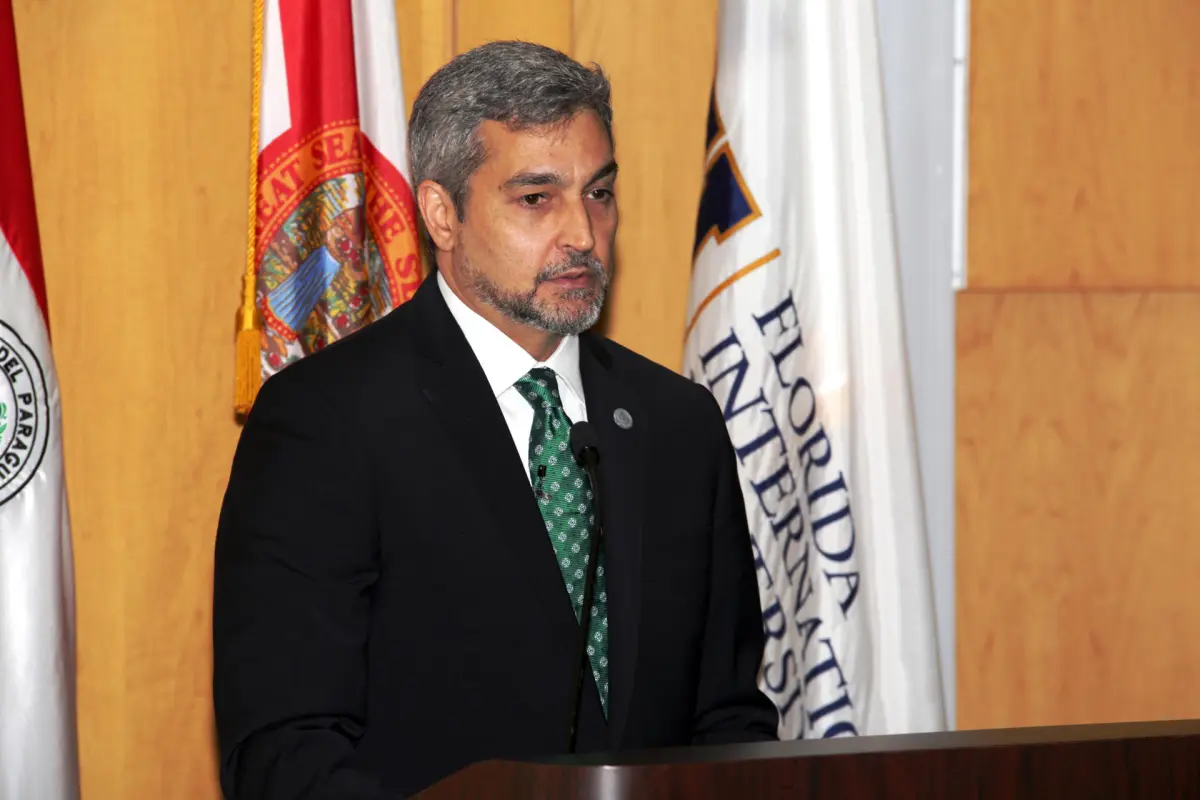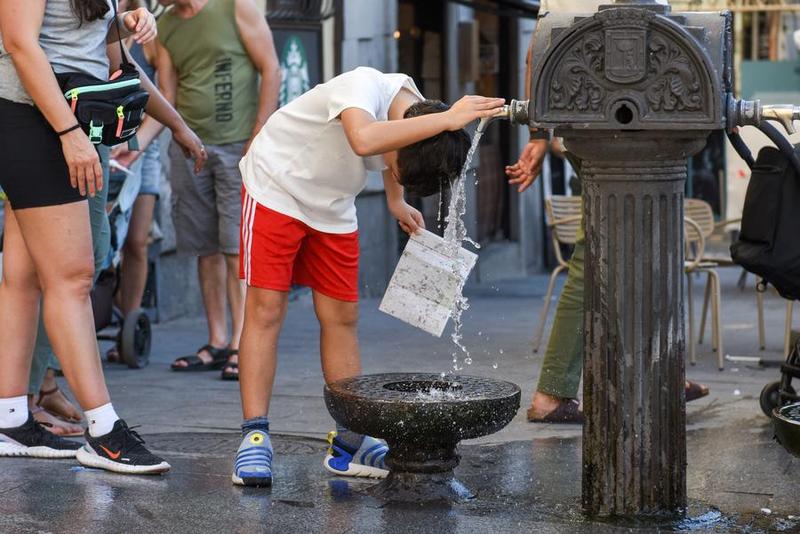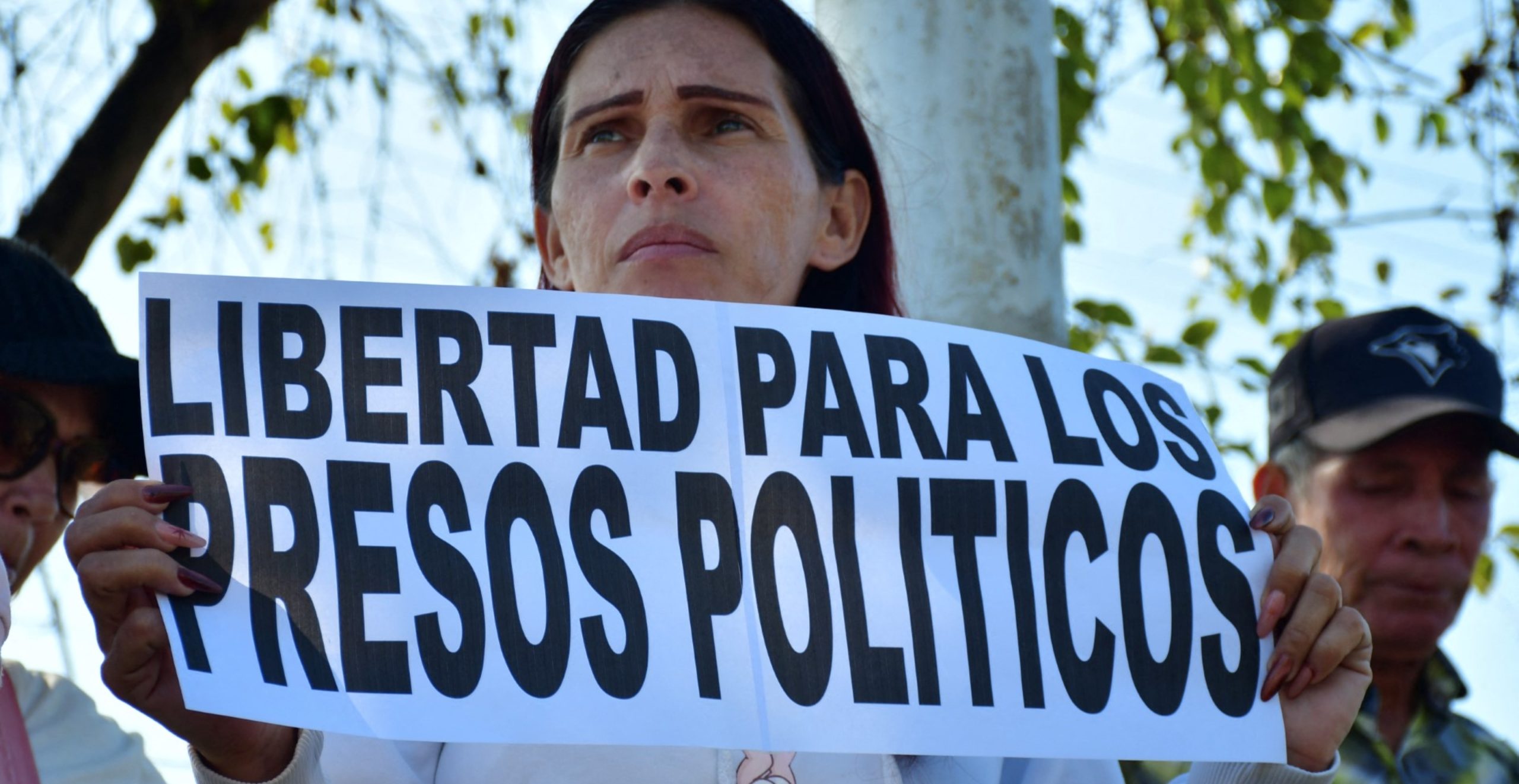A judge in Paraguay admitted on Thursday the accusation against former President Mario Abdo Benítez (2018-2023) and eight officials of his administration and announced that she will ask the Upper House for the disasacharge of the political leader, who is a senator for life for having headed the Executive.
In statements to journalists, the criminal judge of guarantees Cynthia Lovera assured that, after the analysis, “the record of indictment filed by the tax agents is received and the present criminal procedure is assumed to be initiated.”
Lovera explained that hearings were set for the imposition of measures for seven former officials.
Another was the case for the former governor and his former private secretary and official deputy Mauricio Espínola, since he must previously send the request for disasaution to Congress, based on article 191 of the National Constitution, before continuing the case.
In addition, the judge set next September 11 as the date on which prosecutors must present the “conclusive requirement” at the end of the preparatory stage, which may be against or in favor of the accused.
Abdo Benítez and the eight former officials were accused last Monday by two prosecutors for the alleged crimes of disclosure of service secrets, false declaration and simulation of a punishable act, among others, within what was described as “a scheme that aspired to generate criminal investigations against figures contrary to their movement within the Colorado Party,” including the also former president Horacio Cartes (2013-2018) and the current president of the country, Santiago Peña.
Prosecutors Aldo Cantero Colmán and Giovanni Grisetti – who this Thursday were removed from the case by the head of the Public Prosecutor’s Office, Emiliano Rolón – said they had suspicions of “the existence of punishable facts” of disclosure of service secrets, disclosure of private secrets by officials or people with special obligation, induction of a subordinate to commit a punishable act, false complaint, simulation of a punishable act, usurpation of public functions and criminal association.
The accusation fell on the former Minister of the Interior Arnaldo Giuzzio, the former holder of the National Anti-Corruption Secretariat (Senac) René Fernández and his former colleague from the Secretariat of Prevention of Money Laundering or Goods (Seprelad) Carlos Adolfo Arregui and the former deputy minister of that entity Carmen Pereira, as well as three other former officials.
The Secretary General of Congress, Antonio Sánchez, confirmed to journalists that the Legislature has already received on this day the request for disasafure from Abdo Benítez and Espínola.
Sánchez indicated that at the next session of the Chamber the request will be received, which will later be analyzed by the Committee on Constitutional Affairs, National Defense and Public Forces.
The Paraguayan Constitution establishes that the respective Chamber will “examine the merit of the summary” submitted by the judge, and by a “two-thirds” majority will decide whether or not it endorses the desafuero.
The accusation against Abdo Benítez and his former officials was splashed on Wednesday by the disclosure by the local press of alleged chats between prosecutor Aldo Cantero and Pedro Ovelar, Cartes’ lawyer.
According to the newspaper ABC Color and ABC Cardinal radio, who allegedly released screenshots of the judicial official’s phone, the alleged conversations between Cantero and Ovelar took place between August and September 2023.
The images show, among others, allusions to alleged meetings between the two, the alleged sending of files from the lawyer to the prosecutor and, apparently, requests from the ombudsman on matters to be investigated.
In response, Abdo Benítez’s defense asked the Prosecutor’s Office to investigate the alleged leaked chats and to order the seizure of the cell phones and computers used in the investigation.










































































